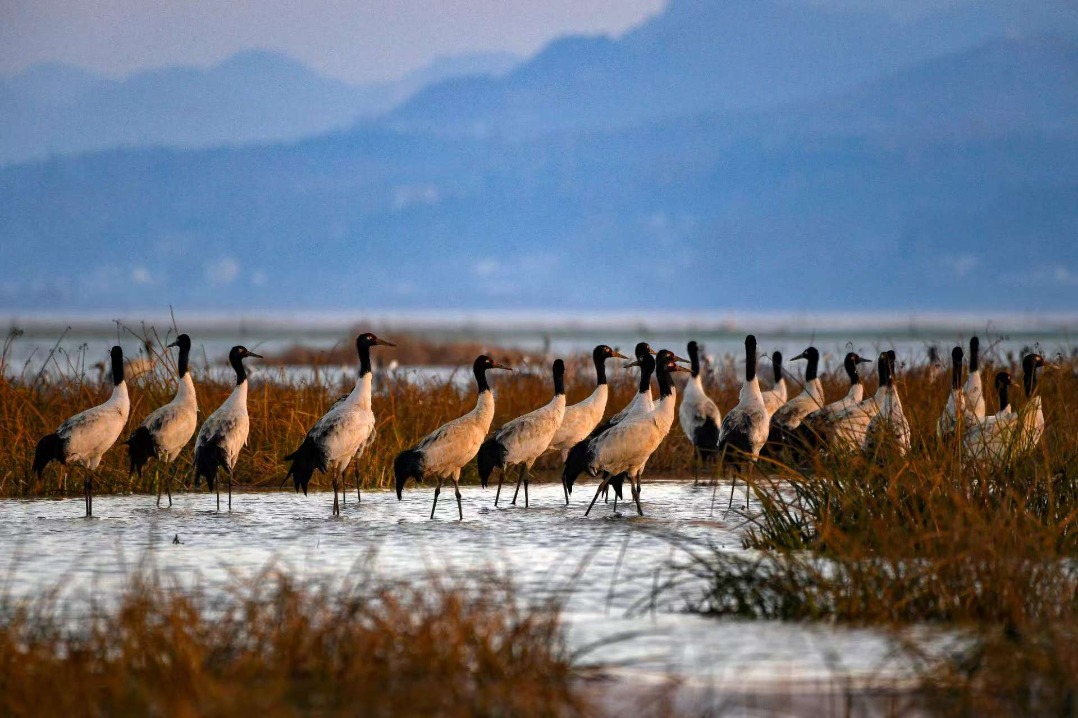Courts strengthen protection of biodiversity


Chinese courts have pledged to strengthen judicial protection of biodiversity and advance the building of a legal system for conserving biodiversity, so as to beautify the environment and increase people's sense of security, fulfillment and happiness.
The pledge was issued in a report by the Supreme People's Court, China's top court, on Dec 5, before the ongoing second phase of the 15th meeting of the Conference of Parties to the United Nations Convention on Biological Diversity, widely known as COP15.
Data released in the report showed that since 2013, courts across the country have handled 182,000 biodiversity cases involving rare and endangered animals and plants, including pangolins, Tibetan antelopes and coral.
In the same period, courts nationwide, highlighting conservation as a top priority, have also intensified the fight against harming biological species, it said.
Nanjing Intermediate People's Court, in Jiangsu province, recently sentenced a man surnamed Dai to 11 years and six months in prison for smuggling 563 kilograms of ivory worth more than 23 million yuan ($3.3 million).
The court confiscated 500,000 yuan of Dai's personal property, and all of his illicit gains were recovered, according to the court.
As a party to the Convention on Biological Diversity, "China has made a solemn commitment to the world to harshly punish ivory smugglers and fully fight against the processing, sale and all business activities involving ivory products", the court said.
It said that Dai's behavior had seriously disrupted the country's foreign trade controls and posed a great threat to global biodiversity.
The report said that Chinese courts have taken several other measures to increase judicial protection.
The top court issued 15 policy documents and 21 judicial interpretations toward building a shared future for all life on Earth, and has established 2,426 teams or panels to specialize in environment-related case handling, the report said.
International exchanges on environmental jurisprudence have also been increased, it added.
Early this year, Patricia Kameri-Mbote, director of the United Nations Environment Programme's Law Division, voiced approval for preventive actions taken by Chinese judges in a case involving the green peacock and underscored the necessity of applying the foundational legal principles of precaution and prevention in environmental adjudication.
Focusing on the potential effect of building a hydropower station in Yunnan province on the habitat of the green peacock, an environmental protection social organization filed a lawsuit against the builders and environmental assessment agencies at the Kunming Intermediate People's Court in Yunnan.
After a review, the court ruled that the construction should be stopped, a ruling that the Yunnan High People's Court upheld in an appeal.
It was China's first public-interest litigation involving biodiversity, and demonstrated its concept of prioritizing conservation and prevention in environmental protection.
- Mountain park hits the highs for environmental protection
- China's biodiversity conservation goals better than average: COP15 president
- The world in photos: Dec 5 - 11
- China showcases its biodiversity at UN conference in Canada
- Positive progress seen in consultations on post-2020 global biodiversity framework: COP15 president
- China urges US to drop negative China-related content in annual defense policy bill
- Beijing's predominant flu strain: H1N1 influenza A
- China amends Supervision Law
- China adopts law on value-added tax
- China vows to strengthen Yellow River ecosystem protection
- The Art of War: A timeless guide to business and finance





































